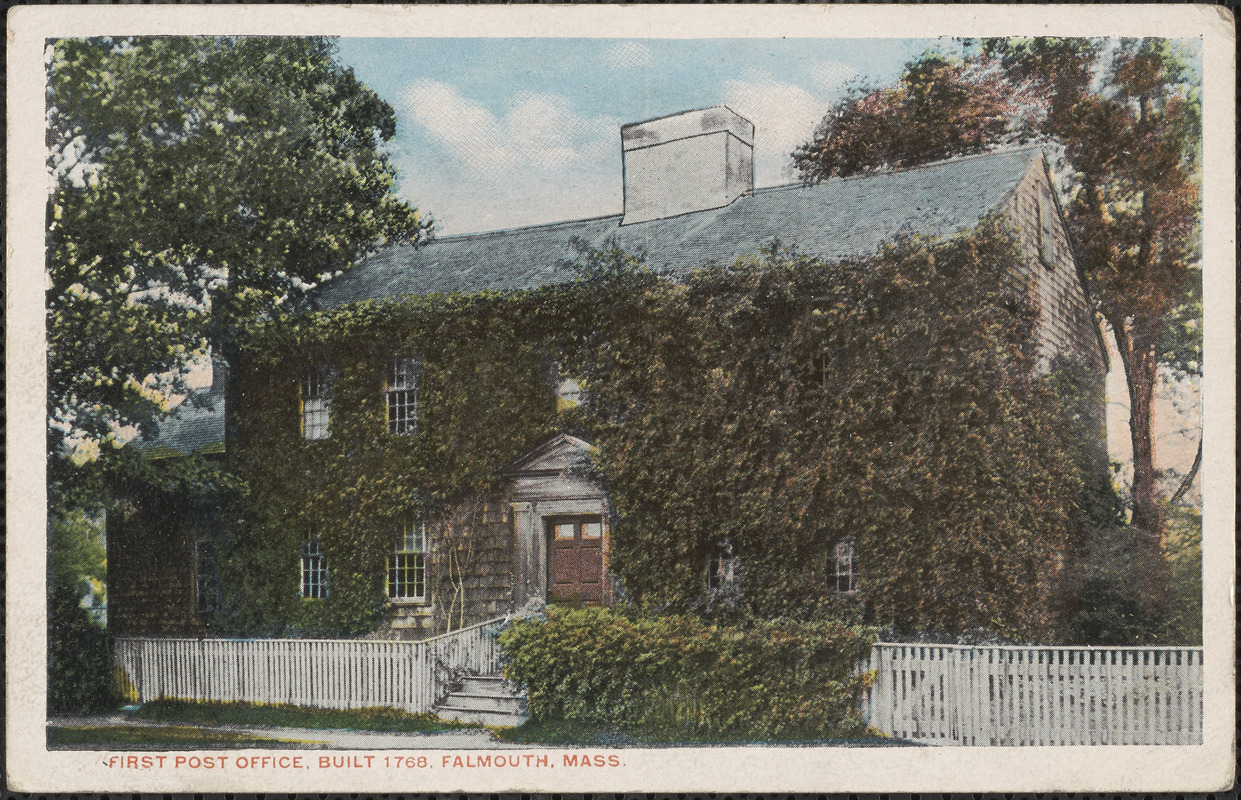POSTCARDS FROM FALMOUTH: Falmouth Center’s First Post Office

Falmouth’s first post office was established in 1795 in the home of the Palmer family (built in 1768). According to The Enterprise, the first postmaster was Jonathan O. Freeman, followed by Joseph Palmer. (Palmer Avenue is named after Mr. Palmer’s father, the Reverend Samuel Palmer.) During this time, the mail arrived in town by a stage coach and was heralded by a trumpet. Residents would “stroll by the postmaster’s home and glance at the front window to see if letters awaited them.”
The historic postcard, pictured here, of the first vine-covered post office was mailed in 1913 for a penny. At that time, E.C. Swift was the postmaster, and the post office was located in the old Masonic building on Main Street. The greeting on the back of the postcard reads as follows: “Dear Mother–Time goes so fast the week is [almost] gone. Every one is well. Auntie says you must come down.”
Subsequently, Falmouth’s central post office had several locations around the Main Street area but ended up at its current location at 120 Main Street in 1940. In celebration of the new building, the postmaster, Charles E. Morrison, announced that there would be tours of the building and a parade down Main Street. The festive occasion was followed by a banquet at the Village School cafeteria that offered an “elaborate menu” from a Boston caterer. Tickets were limited to 300, and were being sold for $1.50. The celebration culminated with a dance in the Hall School gymnasium.
Click here to view the full collection of historic postcards.
Postcards from Falmouth is a local history project awarded to the Falmouth Public Library through a Library Services and Technology Act Grant, administered by the Massachusetts Board of Library Commissioners. The project is based upon the Anita Gunning Postcard Collection and theRobert C. Hunt, Jr. Postcard Collection.
